The chronic scourge of casual antisemitism in a divisive era
Wisconsin has experienced a steep increase in antisemitic acts over recent years, and Jewish community leaders in the state are deploring the pervasiveness of hate as memories of the Holocaust fade.
By Aditi Debnath | Here & Now
February 23, 2023
“It was in the morning around 8, 8:30,” recalled Judith Fai-Podlipnik. “I look down and I just see this object. I picked it up and I was actually quite horrified — horrified, but I was shocked.”
Fai-Podlipnik’s shock and horror came from discovering an antisemitic flier on the driveway of her home in Kenosha.
The flier falsely stated that Jewish people caused the COVID-19 pandemic. Fai-Podlipnik said it was in a plastic bag and weighed down by rocks and a single penny.
As a Holocaust historian, Judith is used to studying antisemitism.
“I called the police and I offered them the information and to provide them with the pamphlet,” she said. “They said that they already had it and they were informed of it.”
The Kenosha Police Department was able to identify the perpetrator and fine him over $4,000, not for a hate crime, but for littering.
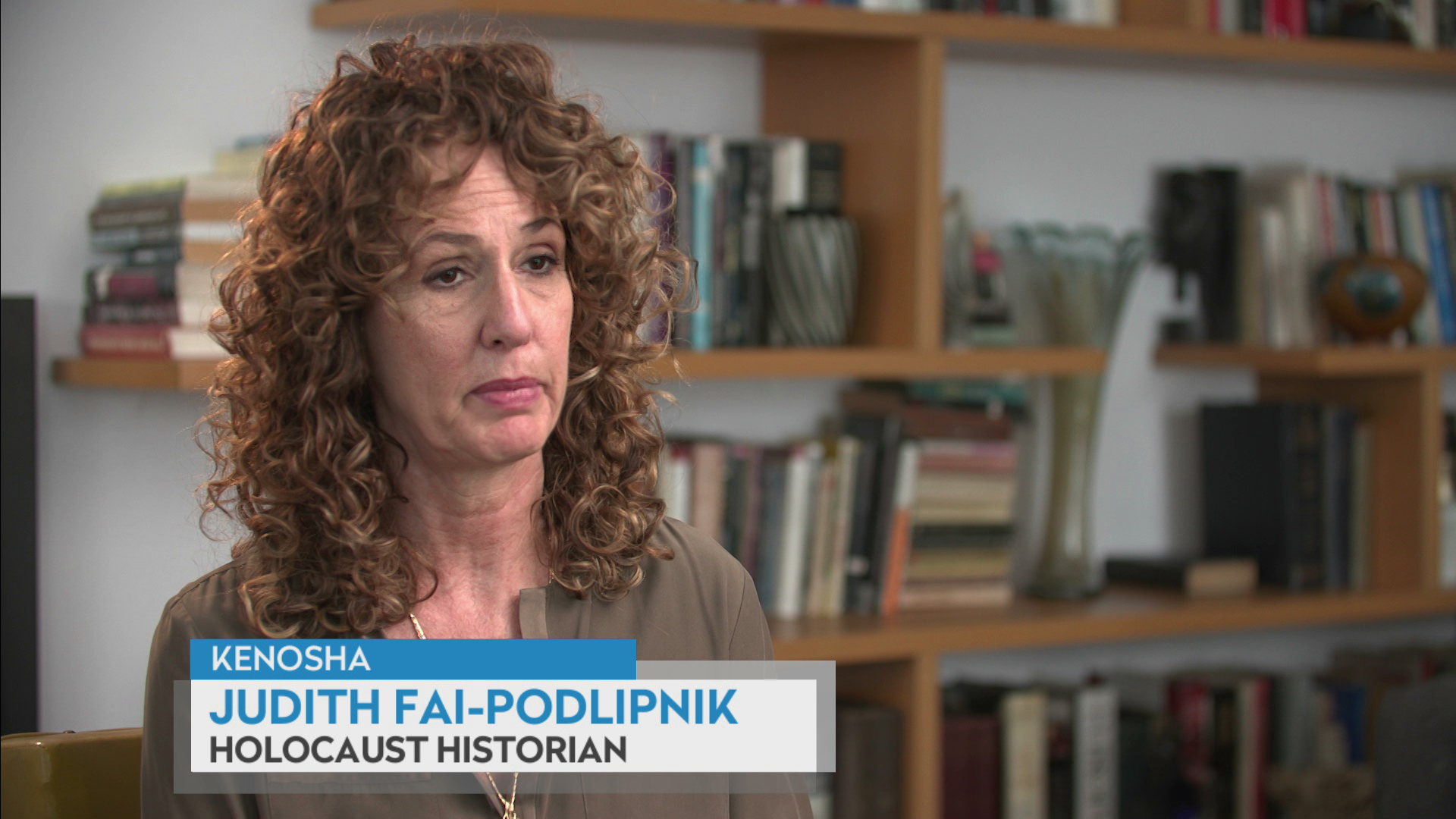
Kenosha resident Judith Fai-Podlipnik found an antisemitic flyer left on her driveway in December 2021 — as a historian and child of Holocaust survivors, she warns that hatred continues to be a threat. (Credit: PBS Wisconsin)
Antisemitic acts around Wisconsin increased by more than 450% between 2015 and 2021, according to the Milwaukee Jewish Federation.
Rabbi Bonnie Margulis of Wisconsin Faith Voices for Justice said conspiracy theories that spread during the COVID-19 pandemic have caused an increase in casual antisemitism.
“It’s become so normalized and so ubiquitous,” she said, “and so people are so comfortable expressing those kinds of feelings and those thoughts and attitudes.”
Margulis said that as the “purplest” state, Wisconsin demonstrates how political divisiveness can exacerbate all prejudices.
“It has really promoted some very narrow and tunnel-vision kind of thinking, and has really made it difficult for people to be able to reach across divides and see each other as human beings.”
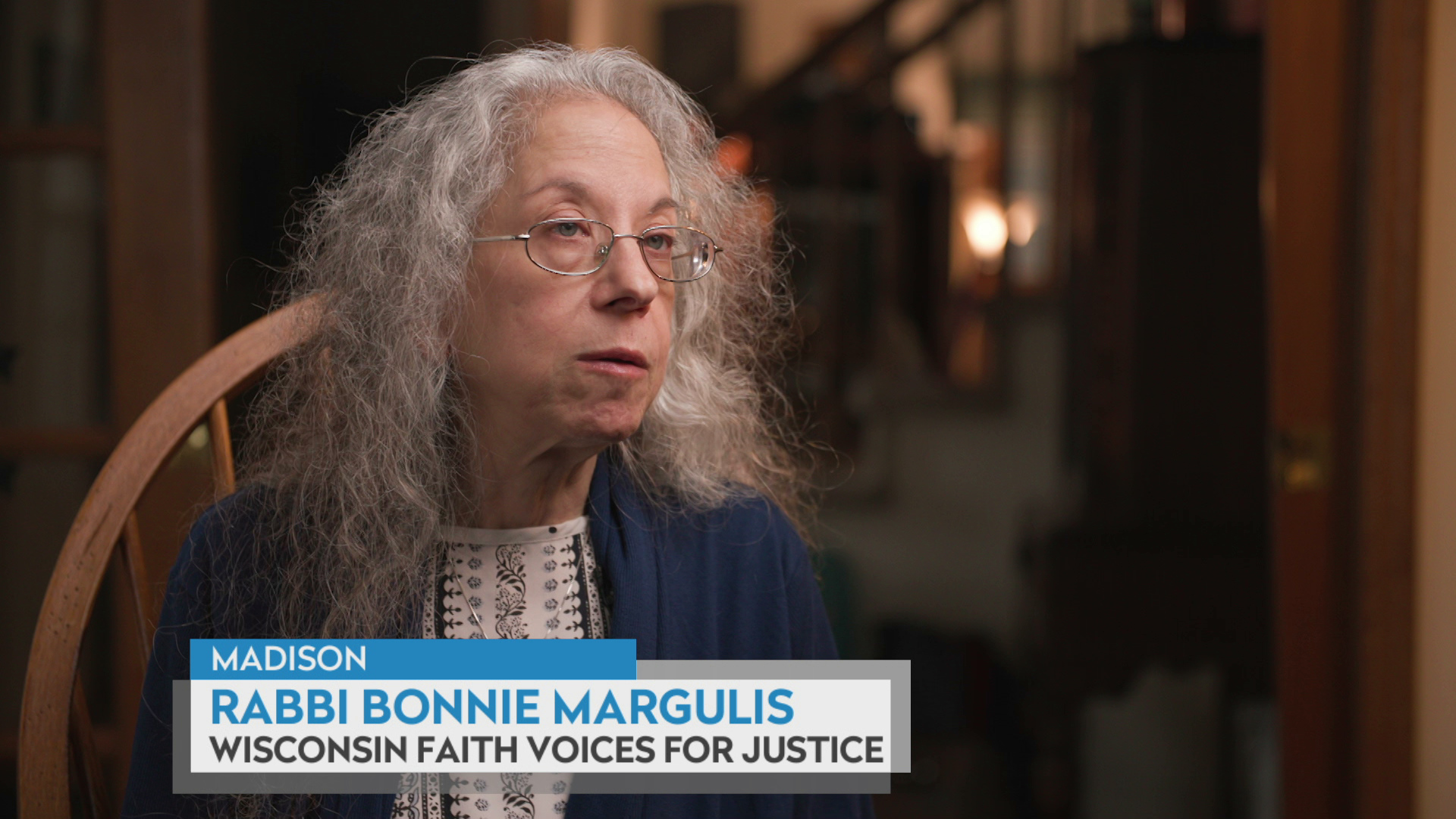
Rabbi Bonnie Margulis of Wisconsin Faith Voices for Justice says an uptick in conspiracy theories since the COVID-19 pandemic is contributing to the prevalence of antisemitism. (Credit: PBS Wisconsin)
According to the FBI, Jewish people have consistently been the most targeted group for religious hate crimes.
“I think in a very divided, very polarized political environment, what you see is an increasing reluctance for people to call out antisemitism within their own political camp,” said UW-Madison sociology professor Chad Goldberg.
He said antisemitism stands out for its subtlety and pervasiveness, and that there are centuries-old antisemitic disparaging tropes that still exist in American culture.
“We should remember, for example, that in the Middle Ages, Jews were accused of poisoning wells. Jews were blamed for the plague,” said Goldberg. “So those motifs, because they had been around for such a long time, because they still circulate in the culture at some level, make Jews really sort of well-suited for the role of scapegoats.”
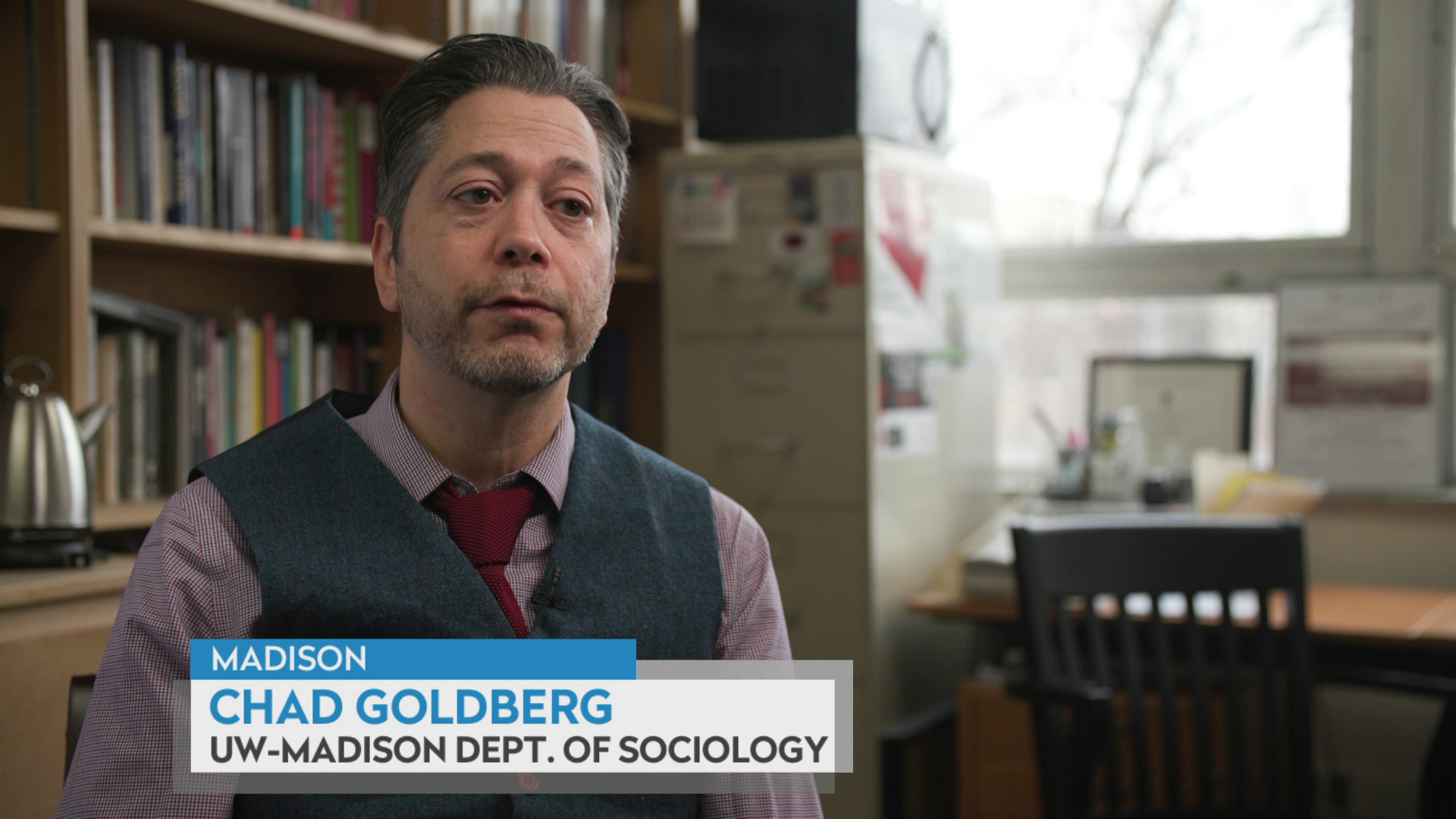
Chad Goldberg, a sociology professor at the University of Wisconsin-Madison, says a divisive political climate is contributing to expressions of antisemitism. (Credit: PBS Wisconsin)
The lack of widespread condemnation of antisemitism alienates Jews from their community, and Fai-Podlipnik said her experience in Kenosha has made her distrustful of others.
“My father, who was a Holocaust survivor, warned me consistently: Antisemitism is alive and well. It may be under the radar, it may be under the covers, but it’s there. Always be careful, and it’s going to come back.”
 Passport
Passport




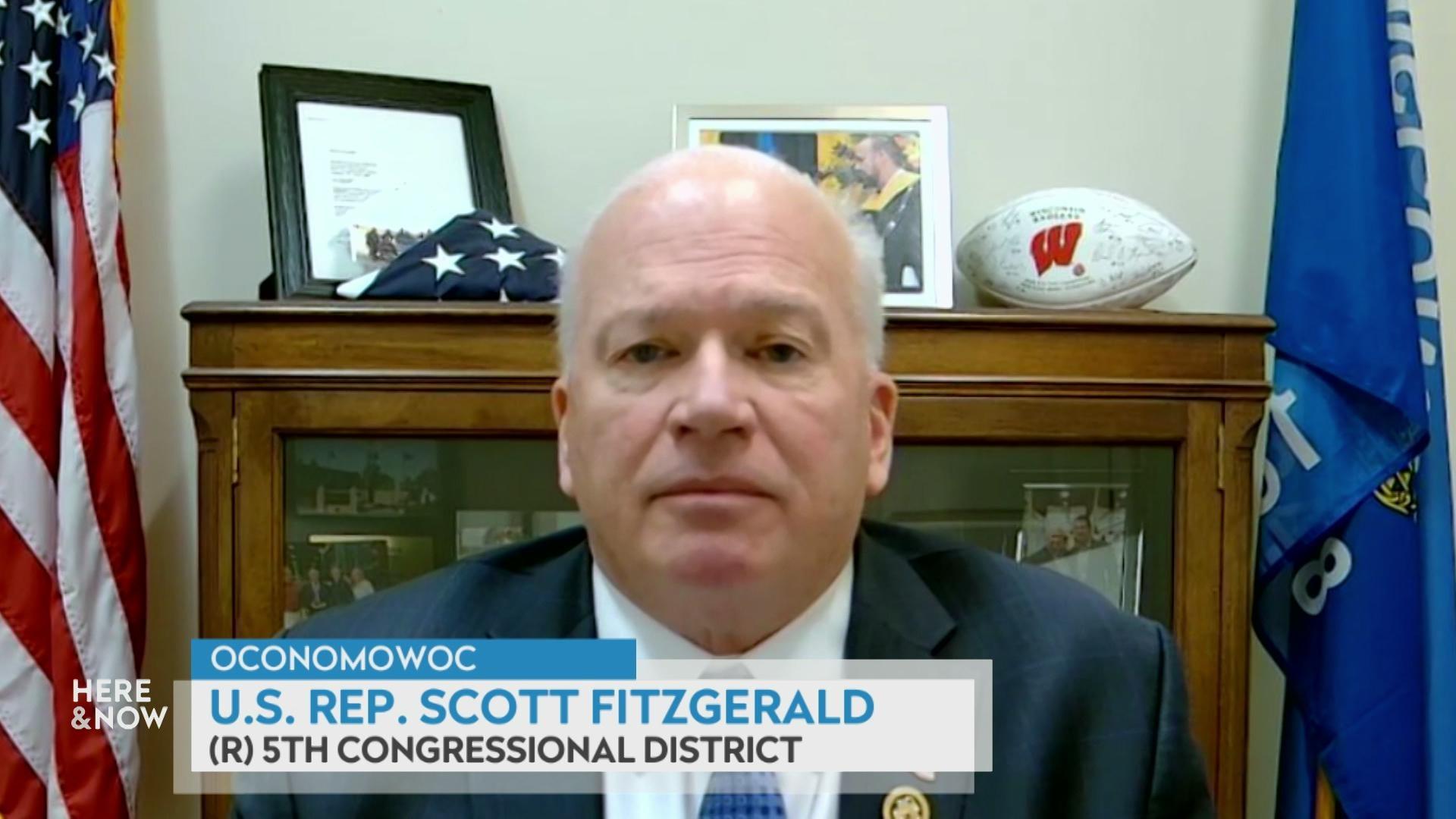
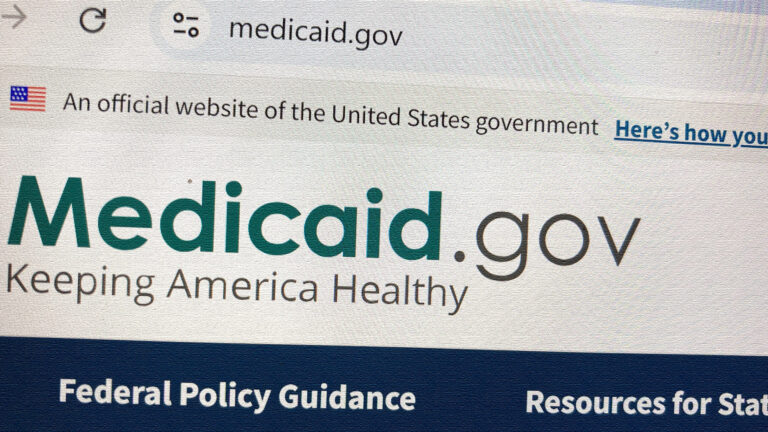
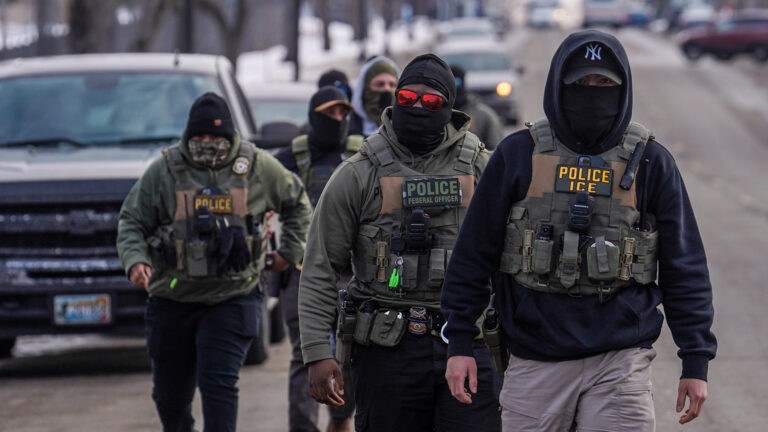
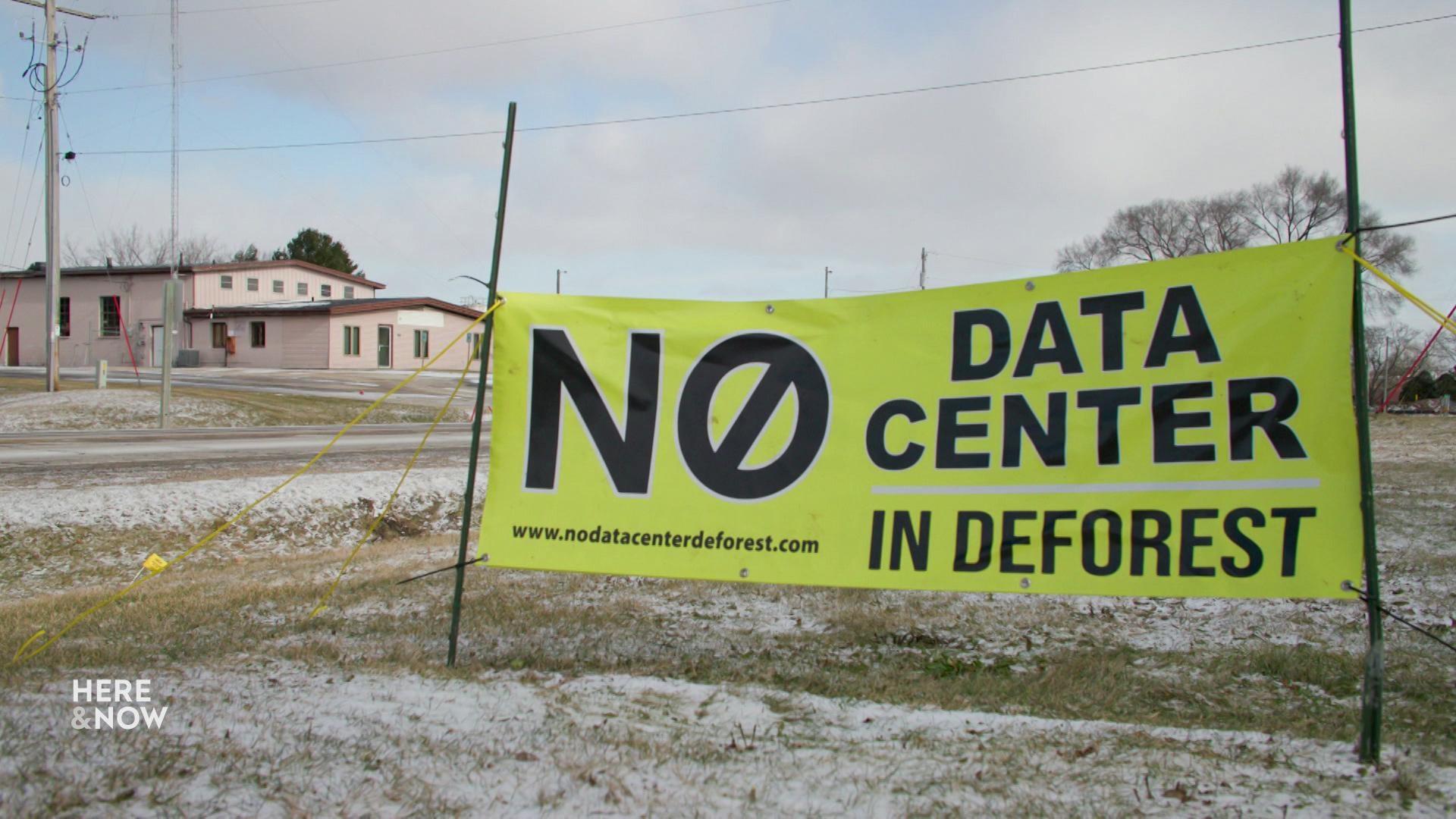
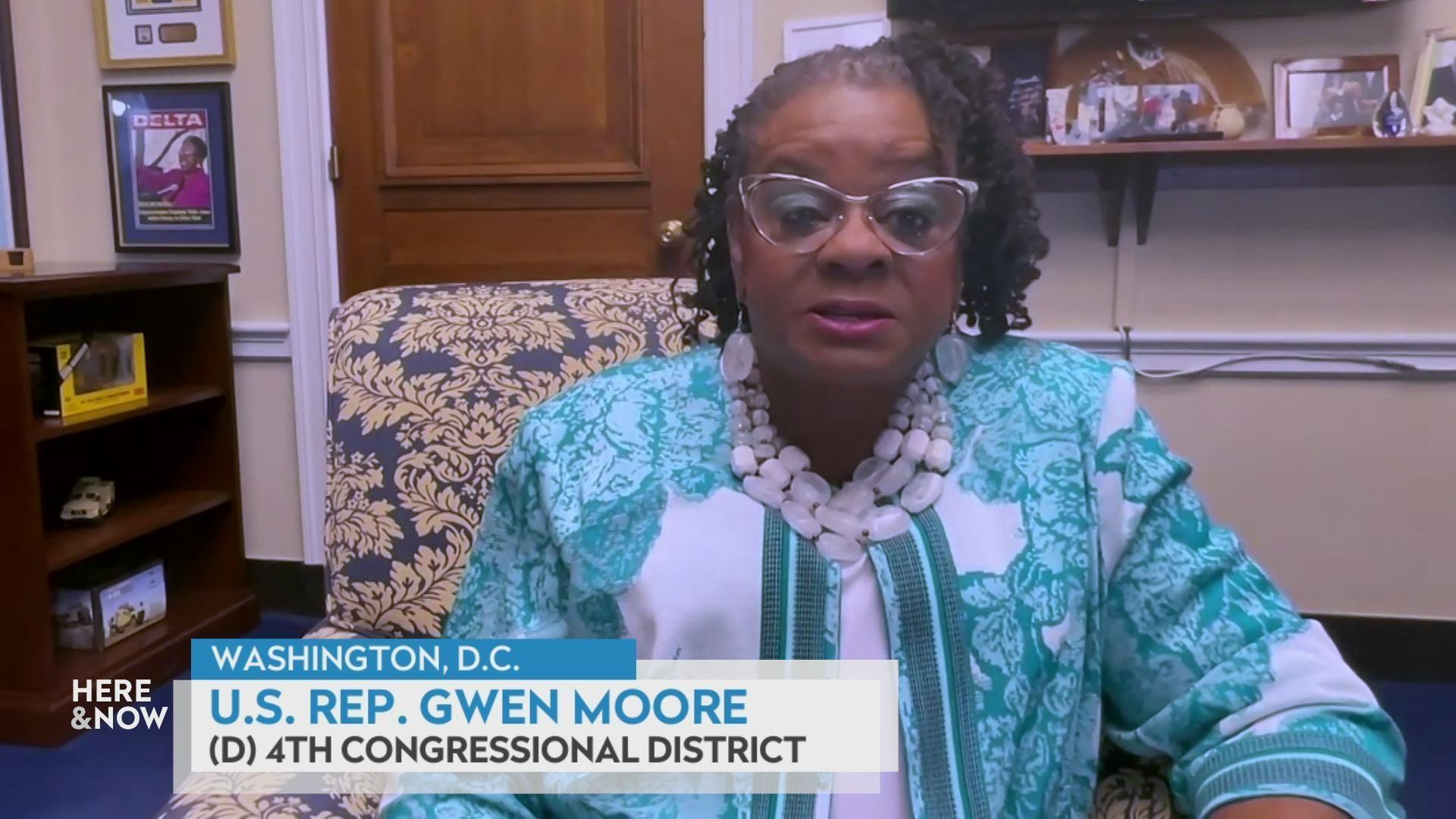
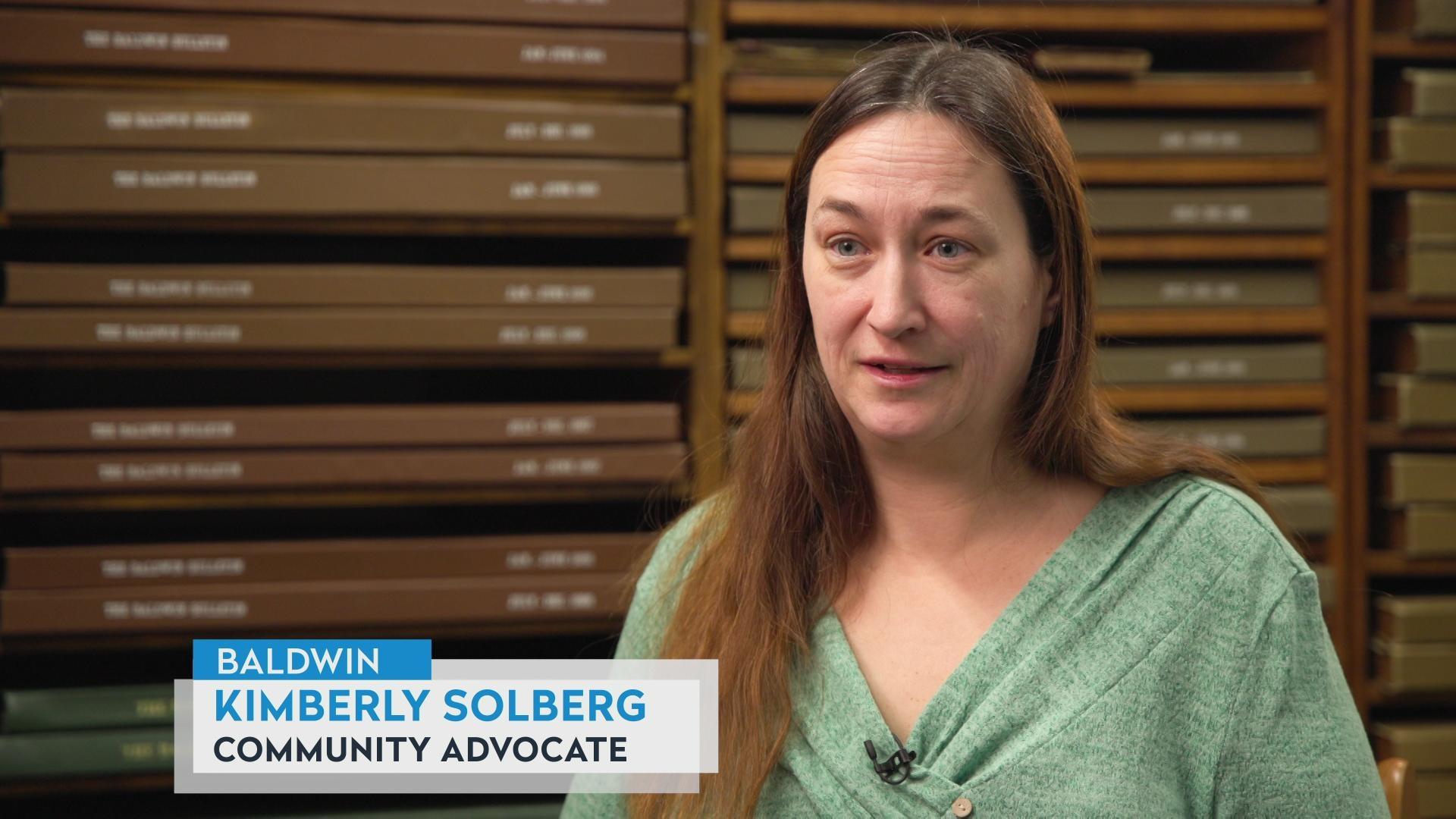

Follow Us